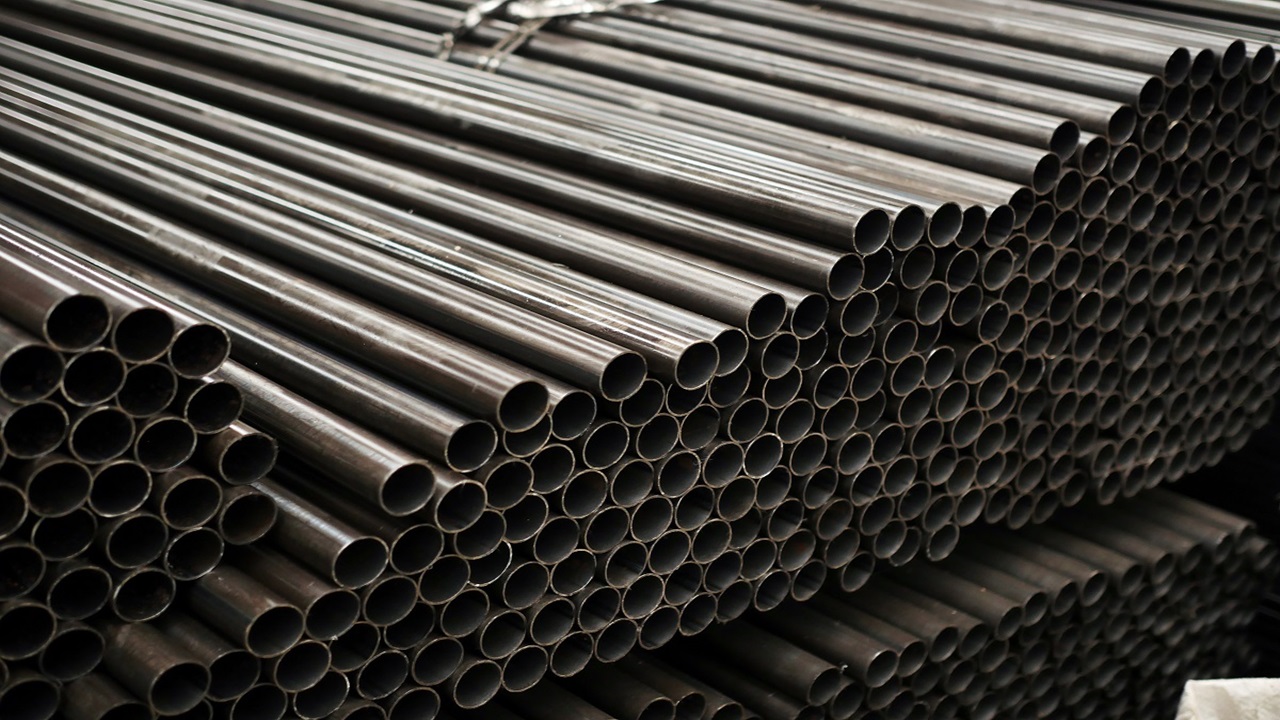GI pipes are used in construction, plumbing, and industrial purposes. But what does the abbreviation “GI” mean and why are GI pipes so important to so many industries? Tuspipe has researched the Steel GI Pipe Full Form In Material, how GI pipes are fabricated, their advantages, and common usage. By the end of the article, it will be clear why GI pipes became standard for durability reliability, and cost-effectiveness in many fields.
How Are GI Pipes Made?
The knowledge of how GI pipes are made makes it easier to explain why they are so strong. Here’s a simplified look at the steps involved:
Preparation
The steel pipe is cleaned to remove oil, dirt, or rust on the surface of the pipe, as with any other iron and steel products that are going to be galvanized.
Pickling
The pipe is then placed in an acid solution to eliminate any remaining surface impurities. This step helps smooth out the surface, preparing it for even coating.
Fluxing
A flux solution is applied to prevent oxidation before the pipe is dipped in zinc. This step is critical in making sure the zinc binds well with the steel surface.
Galvanization
The cleaned and ready pipe is placed in a bath of hot melt zinc. As the pipe cools, the protective layer of zinc forms, strongly attaching to the steel coating. This process produces GI pipes that are rigid and can resist corrosion through extreme exposure to the most challenging environments without rust or corroding easily.
Advantages of Using GI Pipes
GI pipes are extremely durable. Here are some of the benefits that put them on the popularity charts in many industries:
Corrosion Resistance
The Tuspipe’s GI pipes provide the best resistance against rust and corrosion. The zinc coating prevents moisture and oxygen from reaching the underneath layer of steel. This is an excellent feature, making GI pipes a smart choice for outdoor or applications/their surroundings that have excess moisture.
Cost-Effectiveness
Where some materials are corrosion-resistant, such as stainless steel, they are also a little more expensive. GI pipes give a good, competitively priced product for most building, plumbing, and industrial jobs.
Durability and Less Maintenance
The zinc layer protects Tuspipe’s GI pipes against corrosion and extends the lifetime of the pipe. Extremely durable for dozens of decades, with minimal care, GI pipes can be very economical for long-term usage.
Versatile Applications
GI pipes are strong and versatile. They thus find applications for transporting water and gas in aiding construction. The fact that it has stood the test of various applications is why GI pipes remain prevalent across different industries.
Common Applications of GI Pipes
GI pipes are used across multiple fields, often favored for their resilience and versatility. Here are a few popular applications:
Plumbing and Water Supply Systems
GI pipes are commonly used in plumbing and water supply systems where structures are exposed to outdoor or semi-outdoor conditions. They do not rust hence water is not contaminated when used in residential and commercial plumbing systems.
Agricultural Irrigation Systems
In the farming industry, the GI pipes are used in the delivery of water to crops across the farming fields. Perhaps due to these qualities, they can cope with the changes in weather and do not rust easily – ideal for use where there is moisture like outside facilities.
Construction and Structural Support
GI pipes provide strong support for construction frameworks and scaffolding. The latter makes them suitable for use in places where they are required to bear some load, besides the ability of the zinc coating to enable the rods to resist corrosion for a long time.
Industrial Use and Gas Transport
GI pipes are also used for industrial purposes, particularly in the transfer of gas. The coating helps to shield the gas from the possible corrosive effect and also guarantees long service delivery.
Selecting the Proper GI Pipe Dimension and Standards
GI pipes are available for different sizes and thicknesses of walls so as to accommodate one project to the other. For example, in water distribution, small-diameter GI pipes are used while large-diameter pipes are used in industrial applications. GI pipes are available in standard sizes as prescribed by ASTM and ISO and hence most of the pipes used in the construction projects are standardized.
Conclusion
Pipe selection is therefore a function of the project requirements, the environment, and the cost of the pipe type. GI pipes are a good solution because of their high corrosion resistance, relatively low price and applicability. For those who seek a material that is resistant to weather changes, moisture, and time, GI pipes are worth purchasing. For plumbing, agriculture, or construction, GI pipes offer reliability and a sense of security to any project. By realizing what GI pipes have to bring to the table and how they contrast with other materials, the decision-making process becomes easier.

